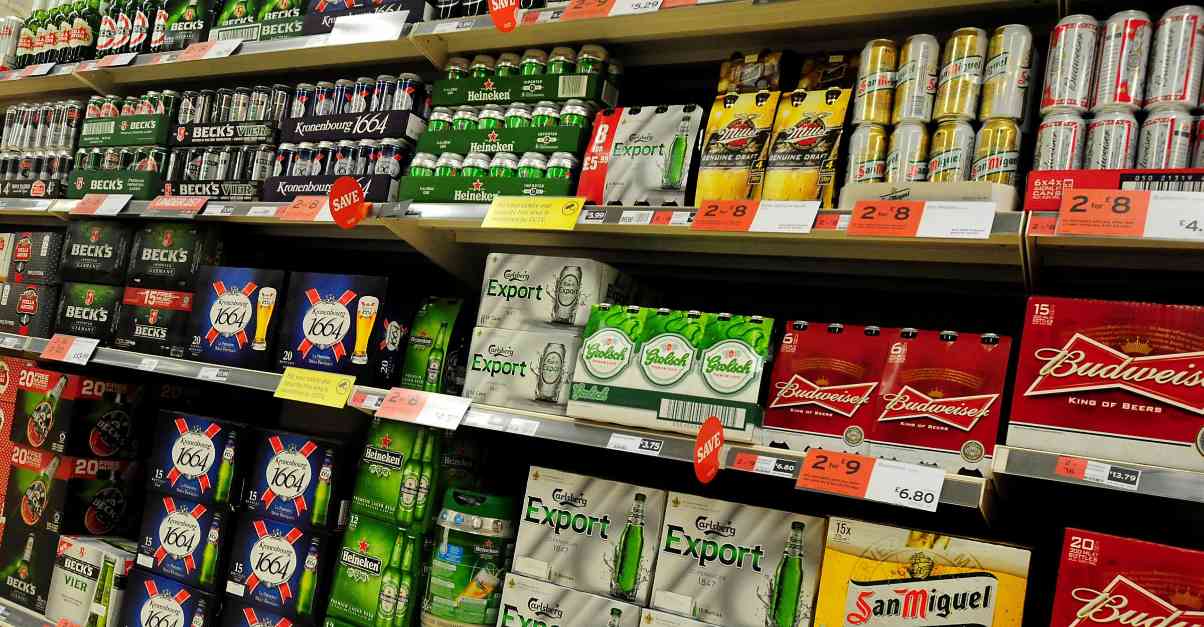Minimum Unit Pricing (MUP) for alcoholic drinks in Scotland has seen a significant increase of 30 per cent, effective today. This rise in the minimum price of alcohol is expected to impact the cost of drinks in both bars and supermarkets across the country.
The Scottish Government has been vocal about the positive effects of the MUP policy, highlighting its role in reducing alcohol-related deaths and lowering the rate of related hospital admissions. Scotland made history by becoming the first country to implement a minimum price for alcoholic beverages back in May 2018.
Today’s increase, from 50p per unit to 65p, marks the first adjustment to the MUP since its inception. This adjustment aims to keep pace with inflation and ensure that the policy remains effective in achieving its intended outcomes.
Impact on Prices
As a result of the increase in MUP, prices on alcoholic drinks are expected to rise across the board. For example, a typical bottle of whisky that previously cost £14 will now be priced at £18.20. Similarly, a can of beer priced at £1 will see an increase to £1.30, while a bottle of cider priced at £2.50 will now be £3.25. Additionally, a bottle of red wine that was previously priced at £6 will now cost £7.80, and a bottle of vodka will rise from £13.13 to £17.06.
Reasons for MUP
The introduction of MUP in Scotland was not aimed at generating income for the government but rather at reducing the availability of cheap alcohol in retail outlets. Before the implementation of MUP, super strength cider with an alcohol content of 7.5% was being sold in two-liter bottles for as little as £1.99. However, with the introduction of MUP, the same two-liter bottle could not be sold for less than £7.50. Under the new 65p minimum unit price, the price of the two-liter bottle will now be £9.75.
A study conducted by Public Health Scotland in June of last year found that the MUP scheme had been successful in reducing alcohol-related health inequalities. By comparing data with England, the study estimated that there were 13.4% fewer alcohol-related deaths and 4.1% fewer hospital admissions in Scotland as a result of the policy.
Challenges and Progress
Despite the positive impact of MUP on alcohol-related harm in Scotland, the number of alcohol-related deaths in the country remains high. Data from 2023 indicates that Scotland experienced the largest number of alcohol-related deaths in 15 years. This highlights the ongoing challenges that the Scottish Government faces in addressing alcohol-related harm effectively.
The Scottish Government’s Response
The decision to increase the MUP was announced in February, with Health Secretary Neil Gray emphasizing the significant benefits of the policy. Gray stated that research endorsed by global public health experts estimated that the MUP policy had saved hundreds of lives, prevented numerous alcohol-related hospital admissions, and contributed to reducing health inequalities in Scotland.
Gray further emphasized the government’s commitment to reducing alcohol-related harm by ensuring that individuals with problematic alcohol use receive adequate care and support. The government has allocated a record £112 million to alcohol and drug partnerships to deliver treatment and support services at the local level, in addition to investing £100 million in residential rehabilitation programs.
Looking Ahead
In light of the continued challenges posed by alcohol-related harm in Scotland, Health Secretary Neil Gray has commissioned Public Health Scotland to review evidence and explore options for reducing exposure to alcohol marketing. This proactive approach demonstrates the government’s dedication to addressing the complex issues associated with alcohol consumption in the country.
In conclusion, the increase in Minimum Unit Pricing for alcoholic drinks in Scotland represents a significant step towards reducing alcohol-related harm and promoting public health. While challenges persist, the Scottish Government’s commitment to addressing these issues through evidence-based policies and targeted interventions is crucial in ensuring the well-being of individuals across the country.
































